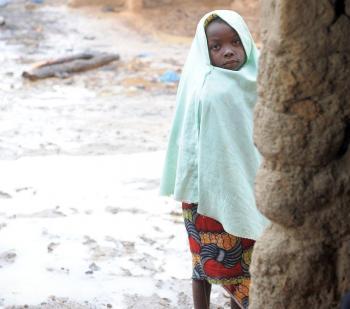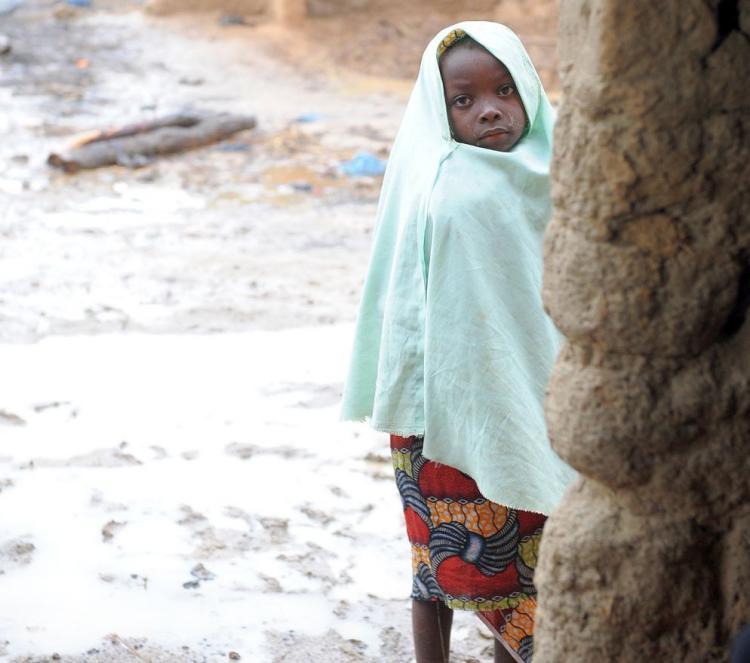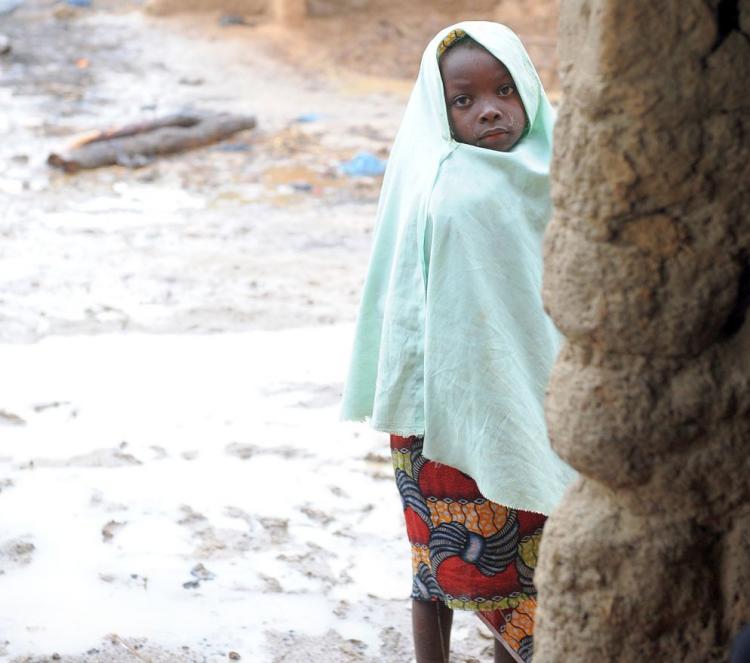Helping locals with the lead poisoning outbreak in Nigeria will involve a massive cleanup and education program, says an Australian nurse working for an international aid organization.
Nigeria: Education Crucial to Prevent More Lead Poisoning
Helping locals with the lead poisoning outbreak in Nigeria will involve a massive cleanup and education program.

A Nigerian girl stands outside a dismantled makeshift structure where gold was processed by miners, leading to lead poisoning in Yargalm village, Bukkuyum Province, in Nigeria's northwest Zamfara State. Pius Utomi Ekpei/AFP/Getty Images
|Updated:




